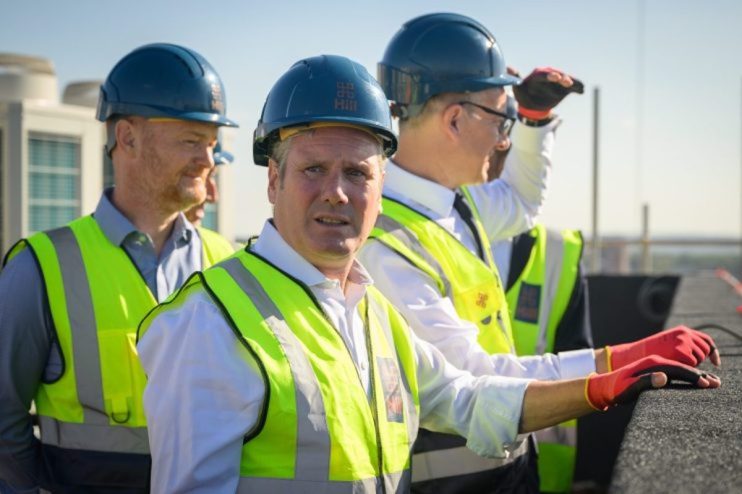Explainer: Keir Starmer picks housing as his trump card

Today Keir Starmer was on a mission to steal the spotlight from Michael Gove’s new laws on renters’ rights. As the Levelling Up Secretary was bringing his much-delayed Bill to Parliament, the leader of the Opposition was on a broadcast marathon to outline his plan for housing.
“We’re gonna back the builders, not the blockers”, said Starmer again and again, keen to make sure the electorate recognised they can trust Labour as the party of homeownership. “We understand the sense of security it gives to working people to have a roof over their own head that is their own”, he said on Good Morning Britain.
Starmer had a lot of evidence to fall back on for his attacks on the Tories. His main line was that Rishi Sunak has let down a generation of potential homeowners by scrapping the housing targets. Starmer pledged to bring the targets back if Labour makes it into government.
He also wasn’t scared of touching on the controversial topic of the green belt, saying he will allow local authorities and councils to build on it if appropriate. He was keen to stress there is not one simple answer to the green belt conundrum: it’s not a yes or no, but it depends on where and how.
On this topic, he might struggle to succeed more than he thinks. After all, it was his colleague Lisa Nandy, the shadow Secretary for Levelling Up, who recently opposed building on the green belt in her constituency. As we’ve written this week, Starmer will have to be prepared to take on the nimbies in his own party if he wants to convince Britain that Labour is radically different from the Conservative Party when it comes to housing policy.
After months of vague promises, Starmer finally set up a clearer direction for his housing strategy. A big part of it will be reforming the planning system, to ensure the balance of power is tilted more in favour of local authorities and less in favour of big developers and landowners.
He repeatedly attacked the latter, accusing them of building too little in order to keep prices high or drive them further up. “We want to change that model”, he said on Times Radio.
This won’t be easy. Starmer is relying on the fact that local authorities do want to build – but he must remember they need a big incentive to stand up for new planning developments against local residents who can often be very angry about them. They’ll need to feel they have the governing party on their side when they make these decisions.
Housing falls into Starmer’s broader plan for growth. To “build a better Britain”, he wants more clean energy infrastructure and research infrastructure to be built, not just homes. Real ambition on such a critical topic will go down well with voters increasingly worried about the housing crisis. The next challenge will be convincing them that words will be matched by actions.